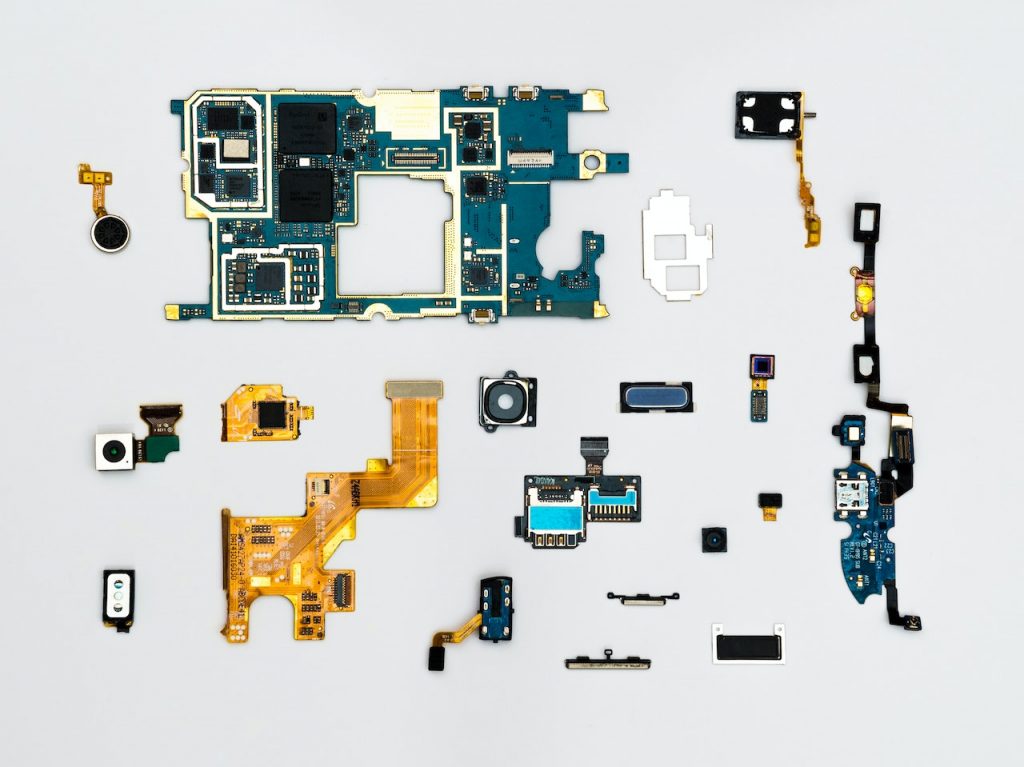Innovative technology is shaking up the real estate industry, ushering in a new era for property transactions in general. From buying and selling to renting, the industry is undergoing an exciting transformation that promises to redefine the entire sector. This article explores how industry players like HousingInteractive can adapt to the exciting possibilities that lie ahead. Are you ready to join us on this high-tech adventure?
| The Future of Real Estate Industry Part 1: Embracing Modern Technology |

The Top Technological Advancements Driving the Real Estate Industry Today
The Real Estate Industry is ever-changing, shaping how we live, work, and invest. From tech advancements to market trends, it offers new opportunities. Join us as we explore the latest developments and insights with our Top Technological Advancements Driving the Real Estate Industry today.
A. Top 5 Online Resources and Communication Tools for Real Estate Professionals
1. HousingInteractive
A leading real estate firm based in the Philippines, HousingInteractive streamlines property transactions, offering a seamless experience for both buyers and sellers. Advanced search filters and personalized recommendations revolutionize traditional processes, saving precious time and effort. Additionally, its platform provides free real estate resources, including lifestyle & neighborhood blogs and the latest industry news. All this valuable information is just a click away.
2. Zoom
In the ever-evolving world of real estate, video conferencing capabilities have emerged as an essential tool for professional agents. This technology facilitates virtual property tours, enabling clients to explore homes from the comfort of their screens. It also empowers agents to conduct client meetings and collaborate with their teams seamlessly. With video conferencing, real estate professionals can bridge distances, enhance communication, and deliver exceptional services in the digital age.
3. Viber
This instant messaging and Voice over Internet Protocol (VoIP) app is one of the most popular communication tools in the country, widely embraced by real estate professionals. It is a reliable channel for constant communication, enabling seamless connectivity with clients and team members. Coordinating property viewings or discussing updates, this versatile tool ensures effective collaboration and successful outcomes for real estate transactions.
4. Google Workspace
This suite of cloud computing, productivity, and collaboration tools, developed by Google, allows for seamless coordination among real estate agents, brokers, and clients. From sharing property details through Google Docs to scheduling viewings in Google Calendar, it’s a powerful tool for organization and productivity in the real estate industry.
5. eSignature Services
In this digital era, electronic signatures have become increasingly vital in any business; the Philippines is no exception. WhaTech, an online platform covering global technology industry news, released an article last year that showcased these exceptional apps. This valuable resource is for those seeking secure and efficient digital transactions. It highlights eight noteworthy applications – Adobe Sign, eSignly, HelloSign, PandaDoc, eversign, SignWell, Preview, and pdfFiller. Each of these apps brings a unique set of features to the table, such as unlimited signature requests per month and customizable branding.
B. Top 5 Automation and Artificial Intelligence Applications for the Real Estate Industry
1. Chatbots
By harnessing the power of artificial intelligence, chatbots on real estate websites can seamlessly engage with users. These advanced bots answer queries and detailed property information. It can also go the extra mile by scheduling viewings, offering a streamlined user experience. With this intelligent automation process, efficient real estate transactions empower buyers and sellers.
2. Real Estate Calculators
Real estate calculators are powerful tools that aid in financial decision-making for buying or selling property. They offer estimates for mortgage payments, agent fees, and property taxes. With advancements in AI technology, these calculators have become even more sophisticated, providing payment schedules and visual representations. Valuable resources from institutions like PagIbig and the BIR are essential for anyone involved in real estate transactions.
3. AI-Powered CRM Systems
AI-powered CRM systems like PropertyBase streamline customer relationship management for real estate professionals. These platforms use AI to analyze customer data, predict customer behavior, personalize communications, and automate follow-ups.
4. Automated Data Analysis Tools
Automated data analysis tools, like Google Analytics, revolutionize businesses with efficiency and accuracy. From data collection to integration and reporting, these tools help identify visitor trends and behaviors and offer plenty of insights for free, with advanced features available through a paid subscription. Stay ahead of the game in understanding customers and improving your presence online.
5. Property Management System
A Property Management System (PMS) is widely used in hospitality, residential rentals, and manufacturing industries. This software offers various benefits, including maintenance monitoring, payment processing, and seamless data tracking for tenants and contractors. The PMS enables quick inspection, tenant screening, streamlined work, and enhanced visibility for property managers. With 24/7 support and customer loyalty, it’s efficient and reliable for managing properties.
C. Top 5 Digital Advertising Platforms
1. Facebook Ads
As the most popular social media platform in the Philippines, Facebook is an excellent platform for real estate advertising. Its targeting features allow real estate professionals to reach potential clients based on location, demographics, and interests.
2. Google Ads
Google’s extensive reach and advanced targeting options make it a powerful platform for real estate advertising. With Google Ads, agents can reach potential clients when they’re searching for properties online.
3. Instagram Ads
Given its visual nature, Instagram is great for showcasing properties through high-quality images and videos. Its integration with Facebook Ads also allows for seamless cross-platform advertising.
4. LinkedIn Ads
LinkedIn is particularly effective for B2B advertising in the real estate industry. It allows professionals to target other businesses looking for commercial properties.
5. YouTube Ads
With the popularity of virtual tours and property walkthroughs, YouTube provides a valuable platform for real estate advertising. It allows agents to showcase properties in a more dynamic, engaging manner.
Brands can leverage digital advertising platforms like TikTok and Reels to create engaging branded content. With Linktree, brands can easily connect followers to additional content, products, or platforms, enhancing their digital presence and delivering a seamless experience to their audience.
| A Brief History of the Internet – A Timeline The Rise of E-Commerce and Social Media The 2010s marked the rise of e-commerce, with online shopping becoming increasingly popular. Companies like Amazon and eBay revolutionized the way people buy and sell goods. Social media platforms, such as Friendster, MySpace, and eventually, Facebook; have emerged, transforming how people connect and share information online. The emergence of the online selling platform Lazada in 2012 revolutionized the Philippines’ e-commerce landscape. Having worked as a Planning Analyst for Lazada, I had the opportunity to witness firsthand how this platform sparked a significant shift in consumer behavior, paving the way for the widespread adoption of online shopping in the country. By providing a convenient and accessible platform for buyers and sellers to connect, Lazada played a pivotal role in shaping the e-commerce industry and transforming the way Filipinos shop. |
Challenges and Considerations
1. Adaptation
While the impact of technology on the real estate industry is predominantly positive, challenges do exist. Traditional real estate professionals may need to adapt to new digital tools and platforms, requiring continuous learning and upskilling. Additionally, ensuring the security of sensitive information and transactions is paramount in the digital landscape.
2. Internet Connectivity
Despite the promises of modern technology, challenges persist in the Philippine real estate industry. Internet connectivity remains uneven in certain areas, affecting the seamless integration of digital tools. Additionally, there is a need for ongoing training and education to ensure that industry professionals are well-equipped to harness the power of technology effectively.
3. Privacy and security
Privacy and security concerns are also paramount in the digital age, especially when handling sensitive personal and financial information online. Implementing robust cybersecurity measures will be crucial to maintaining the trust of both buyers and sellers.
| A Brief History of the Internet – A Timeline Internet of Things (IoT) The Internet has evolved with technological advancements. In 1999, the term “Internet of Things (IoT)” was created, but the concept of a network of smart devices emerged in the 1970s. The Prancing Pony, a computer-controlled vending machine at Stanford Artificial Intelligence Laboratory was one of the first Internet-connected appliances. Today, concepts like 5G connectivity bring faster internet speeds and lower latency, unlocking new opportunities for applications like remote surgery and autonomous vehicles. It enables seamless communication and data exchange between devices and objects. |
Key Takeaway
The real estate industry in the Philippines has experienced tremendous benefits from technological advancements. It has revolutionized property search, simplified transactions, provided virtual experiences, facilitated data-driven decision-making, and enhanced property management. As technology evolves, the real estate sector must embrace further digital innovations, elevating the customer experience and propelling industry growth.

























